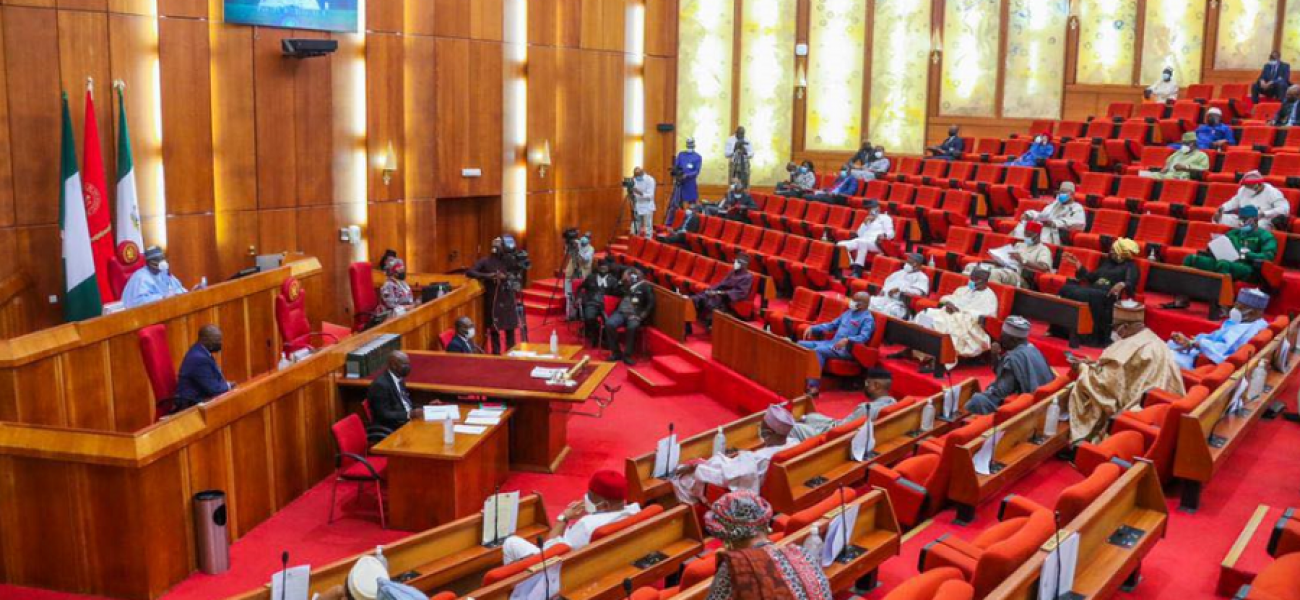The Nigerian Senate on 16th March 2022, passed the Money Laundering (Prevention & Prohibition) Bill 2022. The bill seeks to repeal the Money Laundering (Prohibition) Act, 2011 and enact the Money Laundering (Prevention and Prohibition) Act 2022. This followed consideration of two consolidated Senate bills (SB. 642 and SB. 789) on the subject, which passed second reading in November 2021, with a public hearing conducted on 17th February 2022. Senate Bill 642 is sponsored by Sen. Suleiman Abdu Kwari (APC: Kaduna) and seeks to provide for the establishment of the Bureau for Money Laundering Control (BMLC) domiciled in the Nigerian Financial Intelligence Unit (NFIU), while Senate Bill 789 is sponsored by Sen. Sadiq Suleiman Umar (APC: Kwara )and seeks to provide a legal framework to establish the Special Control Unit Against Money Laundering (SCUML) under the Economic and Financial Crimes Commission (EFCC) to implement the money laundering provisions under this Act with regards to designated non-financial businesses and professions.
The bill provides for an effective and comprehensive legal and institutional framework to support the fight against money laundering in the country by leveraging on prevention, prohibition, prosecution and punishment of offenders. It also provides for the protection of employees of various institutions, bodies and professions who may discover acts of money laundering.
The bill prohibits cash transactions and electronic transfer of money (to and from Nigeria) in excess of prescribed sums and requires financial institutions to report transactions above these limits. Individuals are also required to declare to the Nigeria Custom Service, the import or export of cash or a negotiable instrument above a stipulated sum. The Nigeria Custom Service is expected to report such declaration to SCUML and the Central Bank of Nigeria. The bill criminalises refusal to make a declaration or making a false declaration. The punishment for default is a forfeiture of undeclared funds or negotiable instrument or imprisonment for a term not less than two years or both.
The bill requires financial institutions and designated non-financial businesses and professions to identify and assess risks of money laundering and terrorism financing which may arise in relation to the development of new products and new business practices.
The bill also introduces certain supervisory and enforcement mechanisms through the imposition of administrative penalties for breach of requirements imposed by law. On the other hand, it provides for protection of persons and institutions that discover and report acts of money laundering. No criminal or civil action can be instituted against a financial institution, designated non-financial business and profession, supervisory body, the Federal Inland Revenue Service or any other person that makes a report, and this includes the directors and employees acting on behalf of the above listed institutions.
Penalties for committing offences related to money laundering as stipulated in the bill include imprisonment for a term not less than seven years without the option of fine for individuals, a fine not less than N50 million Naira for financial institutions and fine of not less than N25 million Naira for a designated non-financial business and profession.
The bill also seeks to establish the Special Control Unit Against Money Laundering (SCUML) under the EFCC to implement its provisions in relation to designated non-financial businesses and professions. SCUML was established in 2005 under the Federal Ministry of Industry, Trade and Investment and domiciled in the EFCC. The bill if assented to, will resolve institutional issues regarding the establishment of SCUML.
In its report on the bill, the Senate Committee on Anti-Corruption and Financial Crimes noted that the there was a need to show Nigeria’s commitment and effectiveness with regard to its legal framework for Anti-Money Laundering/Combating the Financing of Terrorism (AML/CFT), through passage of the bill into law. This will then enable the country meet the requirements of the Financial Action Task Force (FATF)’s International Cooperation Review Group (ICRG) one-year observation period, during which the country is expected to demonstrate significant improvement in its AML/CFT legal regime. In addition, the bill will enable Nigeria to favourably exit the Enhanced Follow-up Process of the Inter-Governmental Action Group against Money Laundering in West Africa (GIABA).

